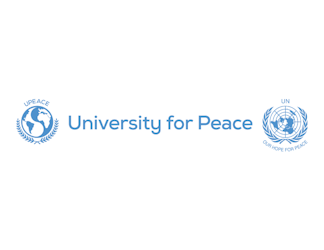Start time 06:00 (New York) / 12:00 (Geneva) / 13:00 (Jerusalem)
GENEVA – Convening on the sidelines of the 59th session of the UN Human Rights Council in Geneva, the World Jewish Congress (WJC) and the UN University for Peace brought together interfaith leaders, diplomats, and academics for a panel discussion on integrating religious values into the international human rights framework. The panelists shared past experiences and best practices on utilizing religion as a powerful mechanism to bridge ideological divides and foster positive dialogue between local and global faith leaders.
Moderated by Leon Saltiel, Director of Diplomacy at the WJC, explained that the work carried out in Geneva, the center of international diplomacy and human rights advocacy, supports and advances the urgent need for mechanisms that foster interfaith dialogue and cooperation between faith actors. In his remarks, Saltiel elaborated, “At the World Jewish Congress, we are prioritizing interreligious dialogue and exchange by bringing religious and political leaders together, empowering the youth, and establishing long-lasting coalitions with local and global partners.”
The event spotlighted a panel of speakers in a multilateral discussion on the efforts being carried out in Geneva and in the Council:
H.E. Mrs. Vasilika Hysi, Ambassador of Albania to the UN in Geneva, spoke about Albania’s commitment to strengthening protections against hatred and discrimination based on its traditional principles of religious harmony, interfaith coexistence, and tolerance. Amb. Hysi stressed that through her work at the Human Rights Council, she strives to transform the hatred that divides communities into a bridge of equality and unconditional respect. “Within the Human Rights Council,” she stated, “we must ensure that voices of religious communities and moral leaders are not only heard, but also very valued.”
Mariateresa Garrido, Professor, Coordinator of PhD Programs, United Nations University for Peace, emphasized how the UN University for Peace uses education as a tool for understanding and embracing differences across the diplomatic spectrum. The University for Peace, in co-sponsorship with the World Jewish Congress, the Muslim World League and the Pontifical Lateran University, offers an annual fellowship program that enables students from Muslim, Jewish, and Catholic backgrounds to learn how to engage in discussions transcending the boundaries of race, ethnicity, and religion to achieve the shared goal of peaceful resolutions in conflict.
Mohamad Levrak, President, Geneva Interfaith Platform, emphasized the importance of interreligious dialogue as essential for mutual understanding in the face of global divisions. Geneva offers a unique setting where such dialogue should be fully integrated into international efforts. Religious traditions do not divide but serve as bridges for peace, reconciliation, and shared moral values. Strong partnerships between faith-based actors can effectively counter hate speech and promote living together in harmony.
Hernan Vales, Chief of the Indigenous Peoples and Minorities Section at the Office of the High Commissioner for Human Rights (OHCHR), highlighted his office’s efforts to advance mutual understanding and compassion, including the “Faith for Rights” initiative, which engages governments, religious authorities, and civil society to enrich interfaith dialogue and protect human rights. Vales also noted OHCHR’s collaboration with the WJC, such as a jointly organized panel on combating antisemitism in football, held on the sidelines of the UEFA Championship in Berlin in 2024. He announced that a related exhibition, “Sports. Crowds. Power.”—exploring the dual role of sports as both a divider and a unifier against discrimination—will be presented at the 60th session of the UN Human Rights Council. Additionally, Vales referenced a landmark 2021 joint statement by the WJC and the Muslim World League, which marked the first such collaboration between major Muslim and Jewish organizations at the UN to promote dialogue and safeguard freedom of religion and belief. OHCHR also partners with UPEACE on a peace course aimed at countering hate speech.
Prashant Sharma, President and Co-Founder of the Dharma Alliance, explained how, in Dharmic thought, dignity is considered inherent in existence and is rooted in the recognition that every being is interconnected—a principle that also guides the Alliance’s engagement with international institutions and aligns closely with the Universal Declaration of Human Rights. Sharma further stressed that for Dharmic communities, religion is about responsibility; the concept of “dharma” refers not only to spiritual duty but also to ethical conduct. This commitment is reflected in the Alliance’s work with scholars, experts, member states, and multilateral institutions in Geneva, ensuring that interreligious dialogue is always connected to meaningful action.
The event concluded with the signing of a Memorandum of Understanding between the World Jewish Congress and the UN University for Peace on advancing the common goals of promoting interfaith dialogue and understanding, and combating hate, racism, and antisemitism.
Cosponsored by


